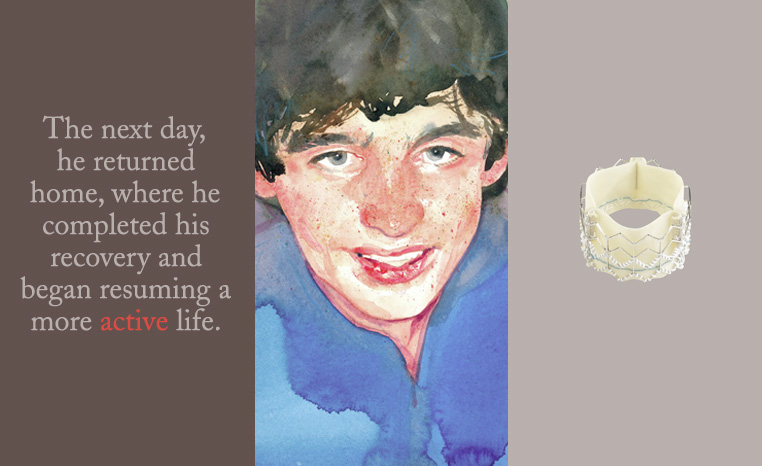Edwards Lifesciences 2005 Annual Report"


Born with a congenital heart defect that caused serious narrowing of
his aortic heart valve, Justin R. has already undergone many medical
procedures in his brief lifetime. Although his aortic and pulmonic heart
valves already had been replaced in earlier surgeries, the 16-year-old’s
condition continued to decline; his blood became so poorly oxygenated
that his mother says he got tired “just talking.”
After determining that he was too fragile to tolerate conventional
open-heart valve surgery, Justin’s physicians asked Edwards
to apply to the U.S. FDA for a special compassionate use status,
allowing them to replace his failing pulmonic valve with the company’s
experimental Cribier-Edwards percutaneous tissue valve.
Just minutes after his procedure, Justin was awake and talking with
his parents. The next day, he returned home, where he completed
his recovery and began resuming a more active life, including stat-keeping
for his high school basketball team, and completing his chores on
the family’s farm.

This experimental, proprietary technology is designed to treat patients with severe aortic heart valve stenosis by threading a replacement heart valve via a catheter through the patient’s circulatory system. Percutaneous heart valve replacement and repair represent important therapeutic options for patients, and Edwards leads the field with the most advanced and comprehensive platform of technologies in development. These new therapies offer the promise of less-invasive treatments, shorter hospital stays and faster recovery times for patients.

